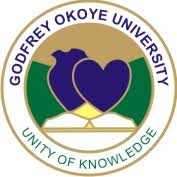Contract Review
Introduction
In chapter 2, we stated that every software project commences after a formal document called contract is signed by both parties. This contract contains the functional specifications of the software, budget and timeline. Contract Review is one of the component activities of a software project, which is under the Pre-project software quality components. A bad contract, which is characterized by loosely defined requirements, and unrealistic budgets and schedules will always yield low quality software, therefore, there is need for good contract review. At the end of this section, the reader is expected to:
■ Explain the two contract review stages.
■ List the objectives of each stage of the contract review.
■ Identify the factors that affect the extent of the review.
■ Identify the difficulties in performing a major contract review.
■ Explain the recommended avenues for implementing a major contract review.
■ Discuss the importance of carrying out a contract review for internal projects.
4.1 The Stages of Contract Review
Contract review guides in the production of good contract, which will define the detail requirement of the customer, the budget and timeline/schedule. It consists of two main stages, which are:
■ Stage One – Review of the proposal draft prior to submission to the potential customer (“proposal draft review”). This stage reviews the finalproposal draft and the proposal’s foundations: customer’s requirementdocuments, customer’s additional details and explanations of therequirements, cost and resources estimates, existing contracts or contractdrafts of the supplier with partners and subcontractors.
■ Stage Two – Review of contract draft prior to signing (“contract draft review”). This stage reviews the contract draft on the basis of the proposal and the understandings (including changes) reached during the contract negotiations sessions.
4.2 The Objectives of Contract Review
Since the two stages of Contract Review, review the draft proposal and draft contract. Each of these stages has its objectives, as stated below:
- Objectives of Draft Proposal Review:Customer requirements have been clarified and documented.Alternative approaches for carrying out the project have been examined.Formal aspects of the relationship between the customer and the software
firm have been specified.
The proposal should define formalities that include:
■ Customer communication and interface channels
■ Project deliverables and acceptance criteria
■ Formal phase approval process
■ Customer design and test follow-up method
■ Customer change request procedure.
- Identification of development risks.
Development risks, such as insufficient professional know-how regarding the project’s professional area or the use of required development tools, need to be identified and resolved.
- Adequate estimation of project resources and timetable.
- Examination of the company’s capacity with respect to the project.
This examination should consider professional competence as well as the availability of the required team members and development facilities on the scheduled time.
- Examination of the customer’s capacity to meet his commitments.
This examination refers to the customer’s financial and organizational capacities, such as personnel recruitment and training, installation of the required hardware, and upgrading of its communications equipment.
- Definition of partner and subcontractor participation.
This covers quality assurance issues, payment schedules, distribution of project income/profits, and cooperation between project management and teams.
- Definition and protection of proprietary rights.
This factor is of vital importance in cases where reused software is inserted into a new package or when rights for future reuse of the current software need to be decided. This item also refers to the use of proprietary files of data crucial for operating the system and security measures.
4.2.2 Objectives of Draft Contract Review:
The objectives of the contract draft review are to make sure that the following activities have been performed satisfactorily:
- No unclarified issues remain in the contract draft.
- All the understandings reached between the customer and the firm are to be fully and correctly documented in the contract and its appendices. These understandings are meant to resolve all the unclarified issues and differences between the customer and the firm that have been revealed so far.
- No changes, additions, or omissions that have not been discussed and agreed upon should be introduced into the contract draft. Any change, whether intentional or not, can result in substantial additional and unanticipated commitments on the part of the supplier.
Read the remaining sections in chapter 5, based on the learning outcome stated in section 4.0 (introduction)
Read also chapter 19, Documentation Control.
Take note of the question and answer in the summary sections.
Good luck.
